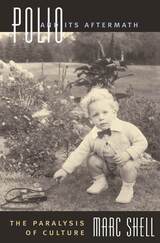

Unlike traditional approaches to the topic, Art & Money is not a study of money and exchange as an artistic "theme." It is also not a study of economics as a context for the history of art. Rather, it is a path-breaking exploration of the internal logic—the set of meanings and values—common to both money and art.
Art & Money provides striking insight into current matters of art collection, counterfeiting, and problems of attribution, into the general relation between word and image, and into controversies over taxation and crises or scandals in the financial world. Shell's historical range is immense, and he fills this study with amusing anecdotes and insights ranging from the relic of the Holy Foreskin to the state's arrest of J. S. G. Boggs, a conceptual artist who draws money. Illustrated with over one hundred halftones and eight color plates, this stunning volume will force a rethinking of our old presumptions about where money ends and art begins.

It was not long ago that scientists proclaimed victory over polio, the dread disease of the 1950s. More recently polio resurfaced, not conquered at all, spreading across the countries of Africa. As we once again face the specter of this disease, along with other killers like AIDS and SARS, this powerful book reminds us of the personal cost, the cultural implications, and the historical significance of one of modern humanity's deadliest biological enemies. In Polio and Its Aftermath Marc Shell, himself a victim of polio, offers an inspired analysis of the disease. Part memoir, part cultural criticism and history, part meditation on the meaning of disease, Shell's work combines the understanding of a medical researcher with the sensitivity of a literary critic. He deftly draws a detailed yet broad picture of the lived experience of a crippling disease as it makes it way into every facet of human existence.
Polio and Its Aftermath conveys the widespread panic that struck as the disease swept the world in the mid-fifties. It captures an atmosphere in which polio vied with the Cold War as the greatest cause of unrest in North America--and in which a strange and often debilitating uncertainty was one of the disease's salient but least treatable symptoms. Polio particularly afflicted the young, and Shell explores what this meant to families and communities. And he reveals why, in spite of the worldwide relief that greeted Jonas Salk's vaccine as a miracle of modern science, we have much more to fear from polio now than we know.

One person can't help stuttering. The other can't help laughing. And in the way one bodily betrayal of better intentions mirrors the other, we find ourselves in the gray area where mind and body connect--and, at the damnedest moments, disconnect. In a book that explores the phenomenon of stuttering from its practical and physical aspects to its historical profile to its existential implications, Marc Shell plumbs the depths of this murky region between will and flesh, intention and expression, idea and word. Looking into the difficulties encountered by people who stutter--as do fifty million worldwide--Shell shows that, however solitary stutterers may be in their quest for normalcy, they share a kinship with many other speakers, both impeded and fluent.
Stutter takes us back to a time when stuttering was believed to be "diagnosis-induced," then on to the complex mix of physical and psychological causes that were later discovered. Ranging from cartoon characters like Porky Pig to cultural icons like Marilyn Monroe, from Moses to Hamlet, Shell reveals how stuttering in literature plays a role in the formation of tone, narrative progression, and character. He considers such questions as: Why does stuttering disappear when the speaker chants? How does singing ease the verbal tics of Tourette's Syndrome? How do stutterers cope with the inexpressible, the unspeakable?
Written by someone who has himself struggled with stuttering all his life, this provocative and wide-ranging book shows that stuttering has implications for myriad types of expression and helps to define what it means to be human.
READERS
Browse our collection.
PUBLISHERS
See BiblioVault's publisher services.
STUDENT SERVICES
Files for college accessibility offices.
UChicago Accessibility Resources
home | accessibility | search | about | contact us
BiblioVault ® 2001 - 2024
The University of Chicago Press









